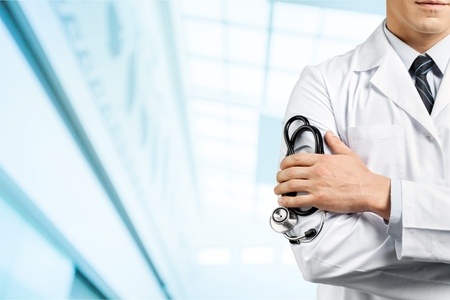 Interstitial cystitis, IC, is a chronic inflammation of the urinary bladder that can lead to chronic pelvic pain, urinary frequency and urgency. Ninety percent of those who have interstitial cystitis are women.
Interstitial cystitis, IC, is a chronic inflammation of the urinary bladder that can lead to chronic pelvic pain, urinary frequency and urgency. Ninety percent of those who have interstitial cystitis are women.Interstitial cystitis can be difficult to identify, and the exact cause of the condition is unknown. Some believe the protective lining of the bladder may leak, allowing irritating substances into the bladder, causing bladder wall irritation.
Many women with IC experience a persistent and urgent need to urinate and may eliminate small amounts of urine around the clock. Complaints of painful intercourse and pelvic pressure are also common. Even though symptoms sometimes mimic urinary tract infection, urine cultures are negative.
In addition to urinalysis and urine culture, your gynecologist may require a number of tests to identify interstitial cystitis. You may be asked to record all fluids you consume and to keep a log of the volume of urine you pass.
Other diagnostic tests for IC include:
- Potassium sensitivity test –solutions of saline and potassium chloride are placed into the bladder separately and symptoms compared. If the potassium chloride solution produces more severe symptoms than the saline, it can be indicative of IC
- Cystoscopy –a thin tube with a camera is passed through the urethra and into the bladder to examine the bladder wall. A small sample of tissue may be removed during the procedure and sent for biopsy.
If you are diagnosed with interstitial cystitis, your gynecologist may prescribe the drug, Pentosan, to help repair the bladder lining. Non-steroidal anti-inflammatory drugs, such as Advil, and antihistamines may also be recommended for the relief of pain and urgency.
Other medical treatment options include bladder washes, electrical nerve stimulation, and physical therapy. Surgery, to remove bladder ulcers or damaged portions of the bladder, is considered a last resort.
Some women find lifestyle changes such as eliminating bladder-irritating foods from the diet, smoking cessation, exercise and bladder training to be helpful.
It is important to see your gynecologist if you are experiencing persistent bladder discomfort or urinary problems. Untreated, interstitial cystitis can damage the bladder wall and lead to decreased bladder capacity.





